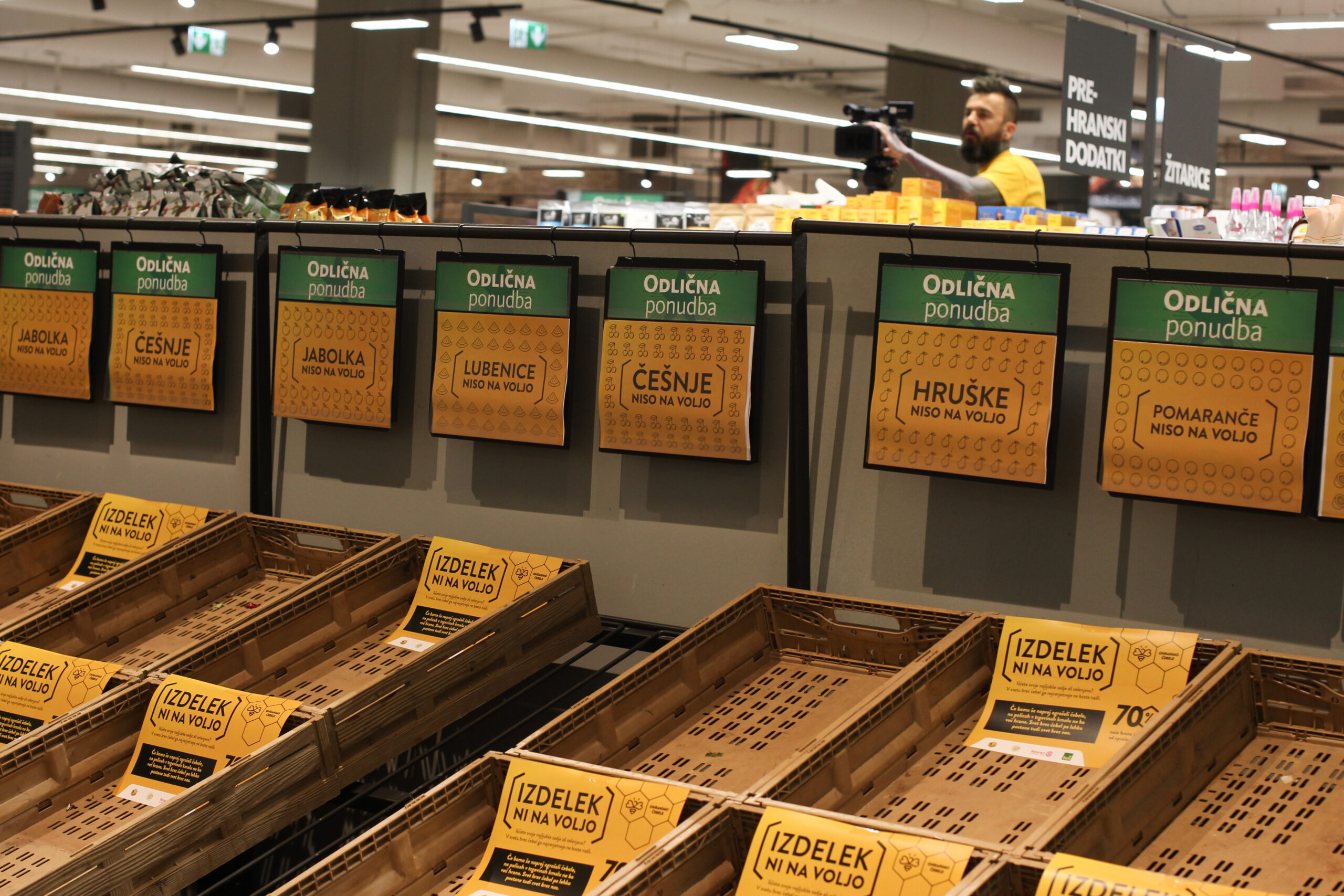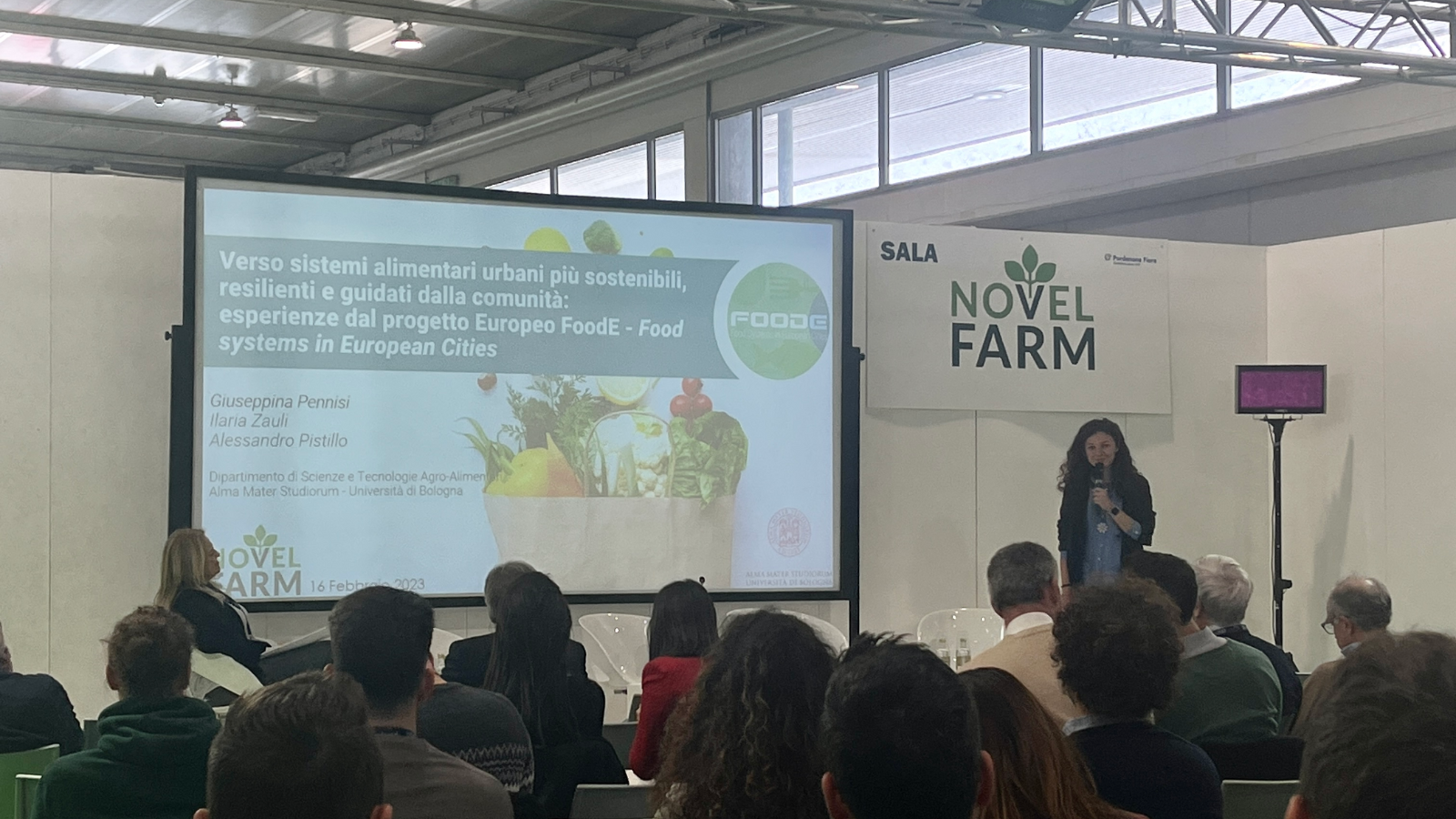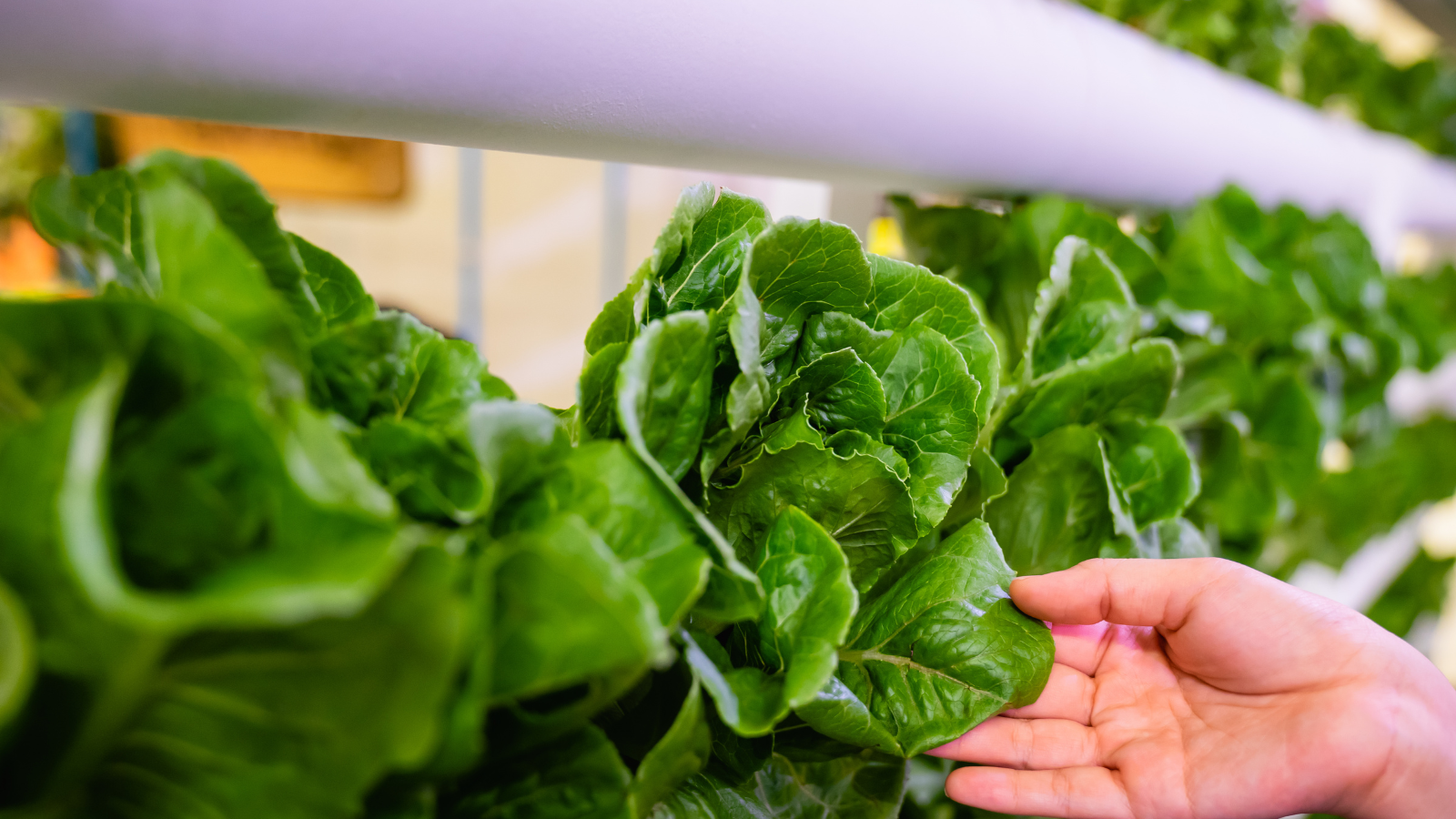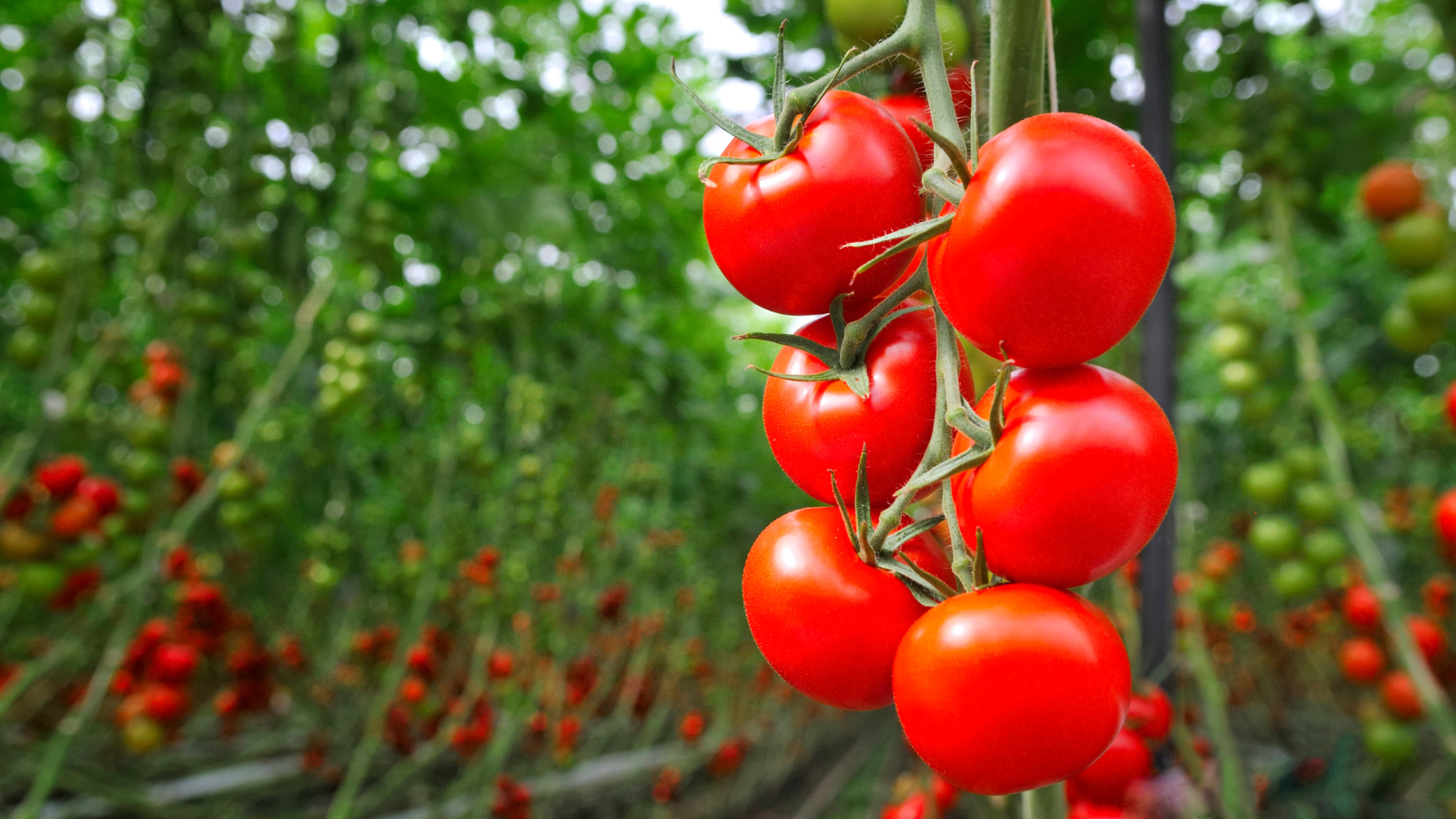Can you imagine that one day you enter your local grocery store and only empty shelves without any food await you there? Baskets where you usually choose between apples, pears, zucchini, tomatoes… all empty. We presented this “one day” to customers in Slovenia, for them to see how it would be like. In a world without bees, you probably would not find your favourite fruit and vegetables. Bees are responsible for pollinating as much as 70% of our food. Despite being dependent on them, we are still endangering them and reducing their population. If we continue like this, there will be no more food on store shelves anytime soon. A world without bees will also become a world without us!
An initiative, in cooperation with the advertising agency New Moment, the Slovenian Beekeepers’ Association and the domestic supermarket chain Tuš from the city of Celje was launched in Slovenia. Customers in one of the Tuš stores were able to see what life would be like without bees. On the last World Bee Day, May 20, products that depend on bee pollination were removed from the shelves at the local supermarket. Customers were surprised and shocked, and most importantly were made aware of the extent to which their lives depend on bees.
A number of empty shelves awaited them, along with an explanation that the products are not available because they depend on pollination and would probably not exist in the world without bees. This initiative has a successful follow-up in 2021 - local beekeeping clubs received similar panels to be delivered to their local food stores and exhibited on the fruit & veggie shelves, reminding customers of the importance of pollinators.
In Slovenia, we are well aware of the threat to bees. We are in favour of them, we respect them, and we strive for their survival. Upon the initiative of several Slovenian national institutions, the UN declared May 20 World Bee Day. Slovenia was also among the first in the EU to ban the use of certain pesticides, dangerous to the bees, already in 2011.
The city of Celje has already joined the project Planting Indigenous Honey Trees and will give a tree to every newborn. Slovenia’s capital – Ljubljana – is a bee-friendly municipality as well, with a number of activities, along with a bee-trail in the city. It would be great if cities around Europe would join forces in preserving the bees and making the cities more bee-friendly in general.
Each of us can contribute to the preservation of bees and other important pollinators. Especially if we know that our survival depends on their wellbeing. We can plant honey plants on balconies, terraces, and gardens, encourage urban and organic gardening and raise awareness of the importance of bees to younger generations. The cities should avoid using pesticides and herbicides when managing public areas. The least - and at the same time the most - each of us can do is to support local beekeepers. Instead of honey imported from a faraway place, which could be of questionable quality, let us choose domestic honey from local beekeepers and thus also support the continuous care of the bees, already living in our vicinity.
Author: Renata Zamida, Društvo urbani čebelar






